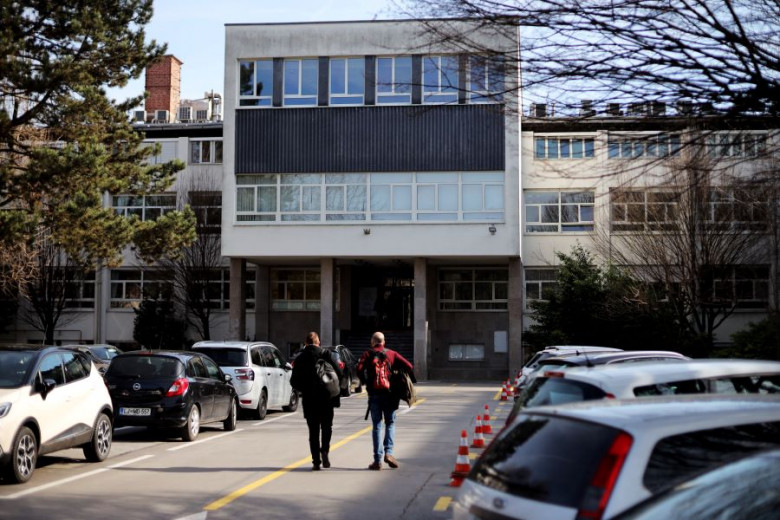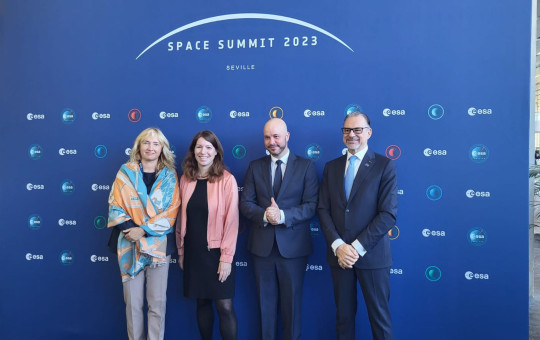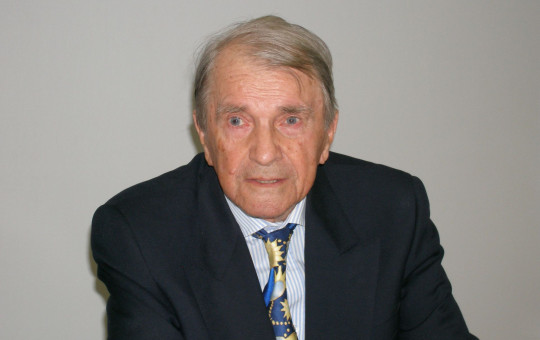The country's top research institution, the Jožef Stefan Institute (IJS), and the Slovenian World Congress were hosting a conference on 24 October featuring scientists and business executives from around the world. The topics ranged from the impact of the global economy on society to climate change.
At the Jožef Stefan Institute, Prime Minister Marjan Šarec addressed the participants of the Jubilee Xth Conference of Slovenian scientists and businessmen from the world and Slovenia. The Prime Minister first emphasized that we can all be very proud of the exceptionally successful and world-renowned Jožef Stefan Institute. According to the Prime Minister, the success of the PIS confirms that much can be done with knowledge and will.
The Jožef Stefan Institute is the leading Slovenian research organisation
It is responsible for a broad spectrum of basic and applied research in the fields of natural sciences and technology. The staff of around 960 specialize in research in physics, chemistry and biochemistry, electronics and information science, nuclear technology, energy utilization and environmental science.
The Institute was founded in 1949 at a time when scientific research was expanding rapidly throughout the world.
Initially established as an institute for Physics within the Slovenian Academy of Sciences and Arts, it is today involved in a wide variety of fields of both scientific and economic interest. After more than 60 years of scientific achievement, the Institute has become part of the image of Slovenia. The basic goals of the Institute are to provide expert scientific and applied output in the form of processes, products and consultancy, and to produce well-trained young scientists.
Top research centre IJS celebrates 70th anniversary
The Jožef Stefan Institute (IJS), marked its 70th anniversary this year.
"All the main fields of research we have ... are of extremely high quality. If they weren't, they wouldn't be there," director of the Institute Jadran Lenarčič says, pointing to fierce global competition. The IJS is now taking part in some 150 projects from the Horizon 2020 programme, and cooperates with research centres and universities from Europe, the US, Japan and South Korea.
"I can say that by some European Commission standards, the institute is one of the 50 most desired research institutions in Europe."
"Given our size, given that we are smaller than many German, French or Italian institutes, we're practically at the very top in terms of EU funds we obtain. The IJS is the largest research centre in the country which by far transcends the Slovenian borders in terms of science and culturally."
With some 990 employees, it covers a range of basic and applied research
Its main areas of research are physics and reactor technology; chemistry, materials, biochemistry and the environment; and ICT with robotics and automation. "All the main fields of research we have ... are of extremely high quality. If they weren't, they wouldn't be there," Lenarčič says, pointing to fierce global competition. The IJS is now taking part in some 150 projects from the Horizon 2020 programme, and cooperates with research centres and universities from Europe, the US, Japan and South Korea.
"Given our size, given that we are smaller than many German, French or Italian institutes, we're practically at the very top in terms of EU funds we obtain."
He believes taking part in international research projects is key to the IJS's quality. The institute has always been more than just a centre of scientific research and technological development, says Lenarčič.
It plays an important role in culture and in pioneering various national policies in nuclear energy, the environment, food and metrology
With its knowledge and breadth, the IJS extends to many areas of social development, which should be further strengthened in the future. Indeed, among the many of its breakthroughs, IJS scientists synthetised a compound of xenon fluoride in the 1960s, which had been until then thought impossible. In the 1980s, they discovered the stefin enzyme and developed the first robots. They also launched the first internet connection and set up the first web site in Slovenia.
"There is no field where we are not among the best in the world", Lenarčič says.
An important discovery was also a micro laser as well as ferromagnetic fluid, which had been considered impossible to produce. Its researchers have taken part in proving the existence of the Higgs boson at the European Organisation for Nuclear Research (CERN).
In 1969, it was renamed after physicist, mathematician and poet Jožef Stefan (1835-1893), the only Slovenian scientist who has discovered one of the basic natural laws. The IJS became part of the University of Ljubljana in 1971, and has been an independent public research institution since 1992.
Date: 25. October 2019
Time to read: 10 min









